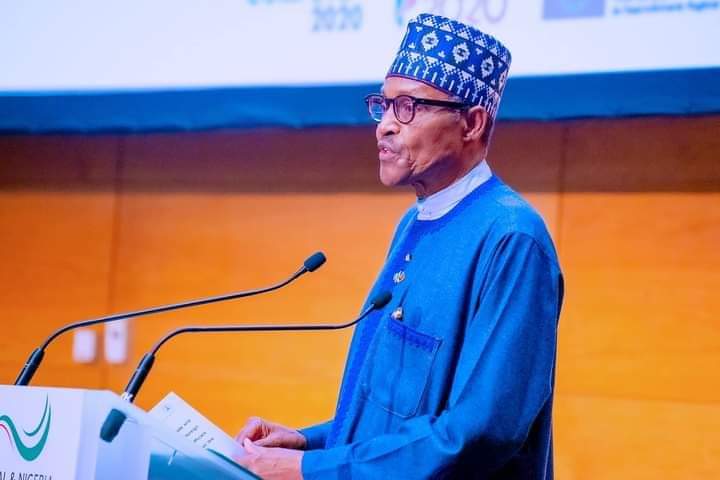No single govt can solve Nigeria’s problems — Buhari
3 min read
President Muhammadu Buhari
President Muhammadu Buhari yesterday said that no single government can solve Nigeria’s problems.
Buhari, at a state- of- nation dialogue on security, economy and administration of justice in Abuja, stated that efforts of successive governments were required to see the country through its challenges.
The President hoped that the event, which was organised by the Nigerian Bar Association (NBA), would contribute to Nigeria’s development.
Buhari, who was represented by the Secretary to the Government of the Federation, Boss Mustapha, reminded lawyers that they owed the nation some responsibilities.
His words: “This is the direction to go. I want to thank you for restoring the hope of Nigerians. I want to believe the bar would provide the necessary leadership. I hope in the course of the discussion, we would be able to bring out a playbook that would provide the guided processes for the incoming regime.
“I would say no one government in this country would be able to solve the problems of Nigeria. But as we build on the precedent set by successive governments, not discarding completely what has been put in place, we would in the course of our desire to build a Nigeria of our dreams, be able to pick one or two things, on which we can concentrate and move.
“As a government, the outcome of this dialogue can be transmitted to us so that whatever resolutions are reached, that would become part of the documents would prepare us as we transit and hand over to an incoming government.”
Kebbi State Governo, Atiku Bagudu, who also attended the event, said one of the ways to tackle insecurity was to give priority to primary education in the country.
He said most of the causes of insecurity were a result of the breakdown of the social contract towards the people.
Bagudu, therefore, advocated more investment in primary education to turn the situation in the country around.
The governor pointed out that in developed countries, as much as $27,000 is spent on a child, while in Nigeria, a rich state like Lagos, spends far less.
He said: “They (children) have not been provided education. The challenges of inclusion are the most current. We need to include more people and so we have to mobilise more resources.”
Bagudu praised the NBA for the theme of the dialogue, which according to him, is holding ahead of the general election.
Deputy Secretary General of the United Nations (UN), Amina Mohammed, condemned the attacks on facilities of the Independent National Electoral Commission (INEC).
She also frowned at attacks on some candidates for the general election, as well as fake news and hate speeches focusing on religious and ethnic identities.
The UN chief said: “INEC has been making great strides in improving the transparency, accountability and credibility of Nigeria’s electoral process. The increase in the number of registered voters from 84m to 93m is encouraging and suggests Nigerians are enthusiastic about the electoral process.
“However, we continue to witness attacks against the institution. Fake news, hate speech, based on religious and ethnic identities, violence against candidates as well as INEC facilities and staff since the political campaigns began.”
Mohammed hoped that the elections would provide an opportunity for Nigerians to unite and shape the future of the nation.
She said as Africa’s largest economy with a youthful population, Nigeria cannot afford to fail.
The UN chief said Nigeria must be steeped in economic, social and environmental principles and must be guided by Agenda 2030 and its 17 goals.
“The Sustainable Development Goals (SDGs) are an urgent to-do list, a blueprint for global and local action. We needed it to develop peace and prosperity and a thriving natural environment for current and future generations.”
NBA President Yakubu Maikyau (SAN) said there was a need to continuously engage government at all levels on issues affecting the country and the citizenry.
He urged members of the Bench and Bar to always ensure that justice was served without fear of favour.
The New Chairman of the Police Service Commission, Solomon Arase, encouraged the deployment of technology to secure the country.
Arase, who added that government cannot solve security problems alone, said the establishment of reform panels over insecurity was a waste of time.




